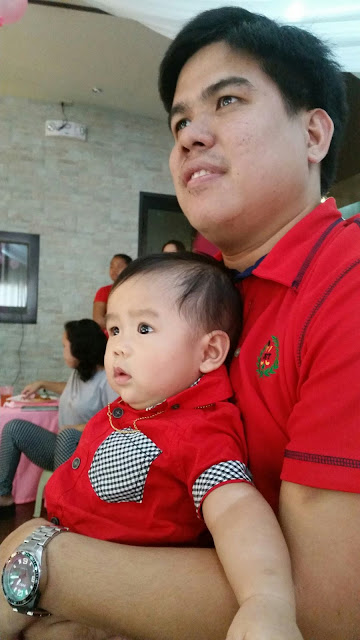What is the Father's Role in Breastfeeding?
We often hear that breastmilk
is suitable for babies up to two years old. Though there is a debate about
whether breastfeeding impacts a baby, as other research shows that breastmilk
is just the same as ready-made powdered milk, it has been socially accepted
that breastfeeding is beneficial.
Breastfeeding is when a mother
feeds her baby breast milk, usually directly from her breast. It's also called
nursing. Decision-making on breastfeeding is a personal matter. It's also
likely to draw opinions from partners, families, and friends. The American
College of Obstetricians and Gynecologists, the American Academy of Pediatrics
(AAP), and many other medical experts recommend breastfeeding exclusively (no
formula, juice, or water) for six months. It suggests continuing to breastfeed
through the baby's first year of life after the introduction of other foods.
How comes a father's role in
breastfeeding? Isn't it just between the mother and the baby? Is there a
possibility that a father could breastfeed his child? These are the common
questions that will quickly come to our mind when we are asked, what is the
role of a father in breastfeeding? Looking at the bigger picture, the question
does not mean that it is the father who will breastfeed the baby. Still,
his role is to ensure that the mother will be supported in all aspects, like
mental, emotional, moral, physical, and even financial.
For mental aspects, a mother
who has just given birth may not think appropriately as they have just
completed a life cycle and she is still enduring various pains. A father needs
to help his partner decide on different things. He should assist the mother in
various decision-making processes so as not to add to the mother's existing
stress. Also, with a peaceful mind, the mother can focus on taking care of her
newborn child, especially during breastfeeding moments.
As to the emotional aspect,
every mother experiences postpartum depression, and this is a vital stage of
their lives where they need complete care, especially from their husbands. It
is common for girls to be attention-seekers sometimes, but this postpartum is
not a joke. They are not just seeking attention but experiencing different
anxieties and depression. As a father, he should not be short-tempered but
instead have a more comprehensive understanding of his partner. No treatment or
medicine can quickly cure postpartum depression, but not adding to the mother's
irritation or loneliness will already help their emotional state.
Another vital role of a father
in ensuring that his partner will feel better is his moral support. Make her
feel that he is always there to support the mother and the baby, build a good
family, and ensure that it is not only the mother who will raise the child.
This moral support will do a lot for the mother's well-being.
For physical support,
three-and-a-half months of maternity leave will not be given to a pregnant
employee for no reason. Through a thorough study, the mother should focus on
taking care of her baby in its first 100 days, as this is the most crucial part
for all newborn babies. With this, it is the father's duty and
responsibility to ensure that his partner will not be overworked. If the
current setup is that the mother is doing household chores, it should not be
the father doing it. But the father should consider hiring someone else to
do those jobs to ensure that the mother will not be loaded with different
tasks.
Last is financial help, which
is the duty of every husband, with or without a child. The father should ensure
that he can provide at least all the baby's basic needs, such as diapers, milk,
wipes, vitamins, etc., and also the mother's needs, such as vitamins and
healthy foods.
With all this support, a mother
will have a healthy body and a peaceful mind, which, over the long run, will
help her produce more milk for the baby. Though the mother, not the
father, has a direct role in breastfeeding, the father will play a vital
role in ensuring that the mother can fulfill her role.
In my personal experience, I
had a struggle with breastfeeding my firstborn son. During the first seven days
old of my son, I have a low milk supply. It made me very paranoid. After
all, I do not know that having a low milk supply in the first few days is
normal because my newborn, with its tiny stomach, only needs a few volumes
of milk. To help me ease my worries, my husband kept on feeding me malunggay
soup as it could enhance my milk supply. The second struggle I experienced has
an inverted nipple which led to my son's difficulty latching my breast. My
husband helped me successfully make our newborn latch by pulling my nipples
with a syringe every time we fed our newborn. We continued to do this process
until I had enough supply of milk and until my nipples started to appear.
Without the presence of my
husband in my breastfeeding journey, I had possibly given up, got depressed
about not being able to feed my baby, and would never attain a stable supply of
breastmilk to feed our baby in two years.





0 Comments